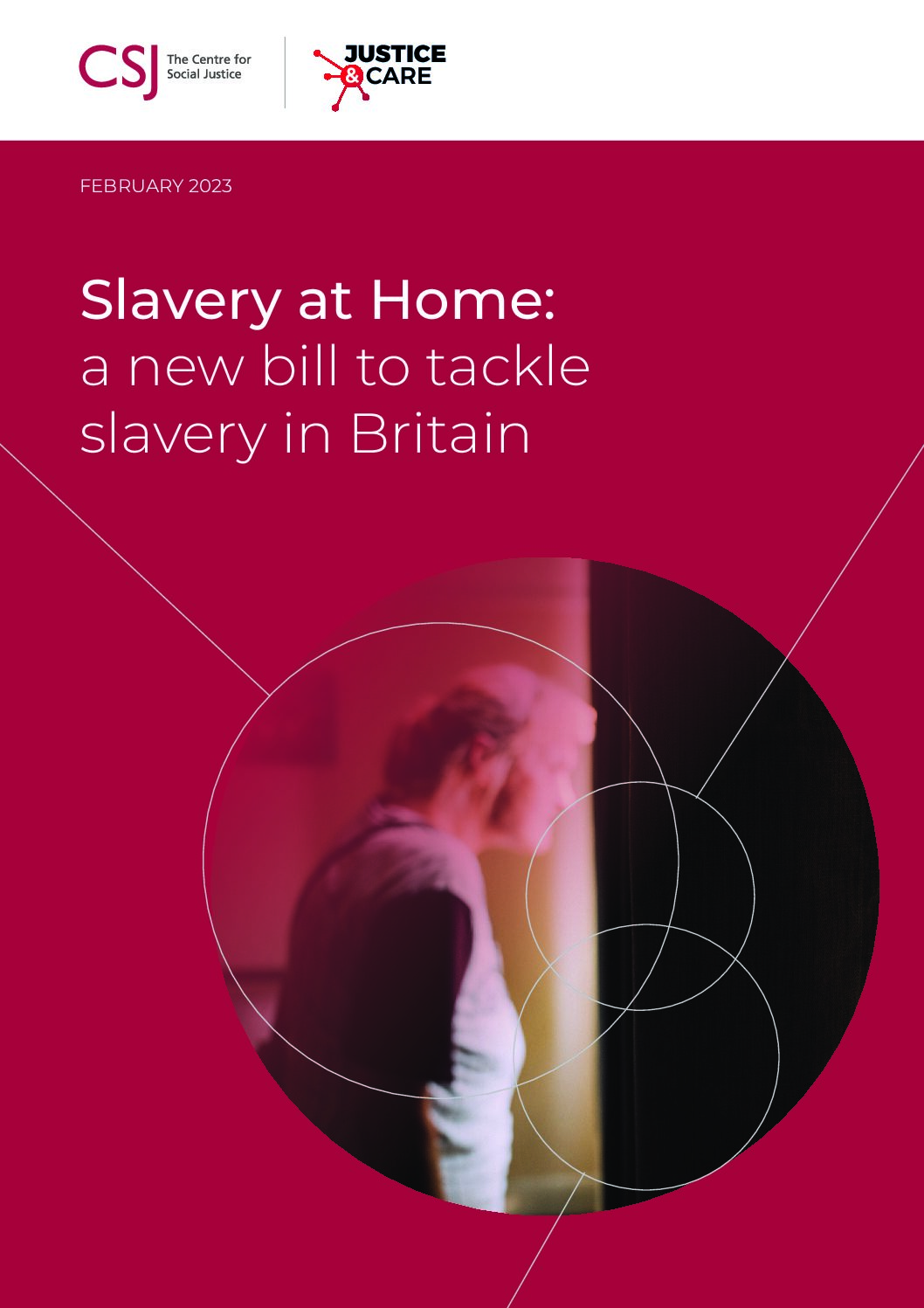In 2015 the Modern Slavery Act marked a turning point in the fight against slavery and human trafficking and set the UK as a global leader in tackling this horrendous crime. Nearly eight years later, despite increased awareness and understanding, the organised crime networks behind modern slavery are continuing to act with impunity.
Increasing numbers of potential victims are being identified and referred for support.12,727 possible victims were referred in 2021 nearly four times as many as the 3,264 referred in 2015. The number of British victims is rising (about 30%) many of them children. Yet more still go unidentified. In 2020, the CSJ with our partners Justice and Care, estimated there could be at least 100,000 victims in the UK.
Hear a survivor’s story below:
James is British man, who was extremely vulnerable after the death of his mom 18 months ago. He felt isolated and was befriended by a man who preyed on his vulnerability and gave him drugs to help numb the pain. James mistook this as an act of kindness. The gang took over his house and used it for drug-dealing and prostitution – they locked him in his bedroom, took over his bank account, and forced him to go to the toilet in a pot. James became their slave. James is now safe, and although deeply affected by the experience, he is being supported by one of anti-slavery charity Justice and Care’s Navigators.
The imperative to stop slavery gangs in their tracks could not be clearer, yet prosecution rates remain low. The truth is that modern slavery is still a low risk, high reward crime.
Over the last couple of years the Government has raised concerns that false claims of modern slavery are being used to bypass the immigration rules. The system must be able to respond robustly and resist abuse. But it must also be fit for purpose to respond to the crime of modern slavery itself. Recently it seems that the focus on false claims has diverted attention from efforts to address the slavery happening in the heart of our communities.
While the Modern Slavery Act set the foundation, now is the time for a new drive towards eradicating exploitation. The Government now has an opportunity to take swift and bold action, injecting new momentum into the fight against modern slavery and shift the balance of risk and reward so criminals can no longer profit from human misery.
The new paper from our joint modern slavery unit ‘Slavery at Home: a new bill to tackle slavery in Britain’ recommends four ways to strengthen the modern slavery system to meet this evolving challenge by introducing the new modern slavery bill and strategy proposed last year:
- Stamping out an emerging form of slavery known as ‘cuckooing’, which is taking root and bringing misery to many vulnerable people in the UK. It cannot be allowed to flourish behind people’s front doors.
- Getting tough on modern slavery offenders to ensure that justice is served with the strength and seriousness these crimes deserve. We have to make more of the punishments in place, consider new ones and deliver meaningful sentencing if this is to move from a low risk – high reward criminal market, to a high risk – low reward one for these evil gangs.
- Shifting the balance in business supply chains. Too many businesses are either unaware of their transparency requirements or dodging them with no consequences. We don’t accept this when it comes to priorities like animal welfare or the environment, modern slavery should be equally unacceptable.
- Smarter support for confirmed victims of modern slavery. The NRM and our overall response to those whose lives have been broken by this abuse needs to change and change fast, beginning with a longer-term package of help for those recovering. Evidence shows that if we help them we also stand a much greater chance of tackling the traffickers too.

